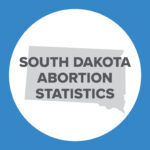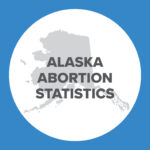Abortion Reporting: North Carolina (2017)

North Carolina’s annual abortion report for 2017 was published online by the State Center for Health Statistics in September 2018. The abortion report is published as part of the state’s Reported Pregnancies publication and contains information on abortions performed in North Carolina and abortions performed on North Carolina residents.
Changes in North Carolina Resident Abortions, 2016-2017

Abortion Totals and Trends
During 2017, 27,183 abortions were reported in North Carolina, basically unchanged from the year before, when 27,138 abortions were performed in the state. Abortion totals have not changed significantly from the 27,266 abortions reported in 1978, North Carolina’s first year of relatively complete abortion reporting. However, abortion in the state has dropped by 28 percent from 1988, when a record 37,629 abortions were reported.
Abortions performed on North Carolina residents – both in North Carolina and in other states – fell by two percent from 23,070 in 2016 to 22,677 in 2017 (Fig. 1). Chemical abortions performed on residents declined by one percent over the same time period; however, the number of abortions with the type of procedure unspecified more than doubled. It is possible that some of these unknown procedures were chemical abortions. Since 2001, the first full year after the U.S. Food and Drug Administration approved the use of mifepristone as an abortifacient, chemical abortions in North Carolina have risen by 660 percent to 9,671 chemical abortions. In 2017, chemical abortions composed at least 43 percent of all abortions performed on residents. The resident abortion rate, 11.2 abortions per 1,000 resident women of childbearing age, declined from 11.5 the previous year (Fig. 2).
State Report Summary
The demographic information in North Carolina’s abortion report is for abortions performed on residents only. Ninety-eight percent of the 22,677 abortions reported to have been performed on North Carolina residents occurred in North Carolina. Over half of the abortions, 57 percent, were performed on women in their twenties. Nine percent were performed on girls under the age of 20, including 36 abortions performed on girls under the age of 15. Thirty-one percent of the North Carolina women undergoing abortions were age 30 or older, and three percent did not have their age reported.
One-third of reported abortions were performed on non-Hispanic white women, while 45 percent were performed on non-Hispanic black women. Twelve percent of the women were Hispanic, and five percent were a different non-Hispanic race. Race was not reported for five percent of the abortions. Non-Hispanic black women make up 25 percent of North Carolina’s general population of women of childbearing age, and non-Hispanic white women make up 59 percent.
Well over half of the abortions – 57 percent – were performed on women with 13 or more years of education. Twenty-eight percent of the women reported 12 years of schooling as their highest level of education, and nine percent had finished fewer than twelve years, while education was not reported for six percent of the women getting abortions. Seventy-eight percent of resident abortions were performed on unmarried women, 14 percent on married women, and eight percent on women of unknown marital status.
Thirty-seven percent of the North Carolina women getting abortions had no living children. Twenty-six percent had one living child, and 36 percent had two or more. Fifty-five percent had no previous abortions. Twenty-one percent had had one prior abortion, and 12 percent had more than one. Another 12 percent did not report whether they had any prior abortions, and two percent did not report whether they had living children.
Many of the abortions performed on North Carolina residents occurred in the first trimester. Almost two-thirds were performed at eight weeks of gestation or earlier, and 22 percent were performed between nine and 12 weeks. Six percent occurred early in the second trimester between 13 and 15 weeks of gestation. Four percent, 811 abortions, were performed between 16 and 20 weeks; of these, 773 abortions were performed in-state, and 38 were performed out-of-state. Forty abortions were performed at 21 weeks of gestation or later. Thirty-nine of these abortions were performed in other states, while only one was performed in North Carolina. North Carolina prohibits abortions after 20 weeks of gestation unless the life or a major bodily function of the mother is at risk.
Ultrasound Laws in North Carolina
North Carolina has enacted two laws to protect life using ultrasound technology. The first law, passed in 2011, established that women getting abortions must be allowed to look at their ultrasounds and have the ultrasounds explained to them, although the women could choose to look away. The law was blocked by a court order and never took effect. Ultimately the Supreme Court declined to hear the case.
In 2015, the state passed a new law requiring doctors to submit ultrasound images for abortions after 16 weeks as well as their methods for determining gestational age. The law was designed to enforce North Carolina’s protections for unborn children after 20 weeks by collecting evidence to ensure that abortions are not being performed after the legal limit. The new law also extended North Carolina’s informed consent waiting period from 24 hours to 72 hours, giving women more time to make their decision.
State Ranking
A CLI study of state abortion reporting ranked North Carolina’s reporting as tied for 29th place out of the 50 states, the District of Columbia, and New York City. North Carolina could improve its reporting by providing information on all the abortions performed in the state, rather than resident abortions only. North Carolina could also collect and report women’s reasons for abortion, especially late-term abortions. The state could report any complications that result from abortion, data that many other states already report. North Carolina has parental consent and informed consent processes in place and could report whether these processes are being followed. In addition, the state could include information about the babies that are aborted, such as whether any babies were viable, and the characteristics of the abortion procedures, such as the types of facilities and the methods used to pay for abortion. By including more information in its reports, the Tar Heel State could provide a clearer picture of abortion in the state.


- According to the North Carolina Department of Health and Human Services, abortions were underreported from 2011 through 2014. The report cautions that rates may differ from previously reported rates because of revisions to population estimates.

























